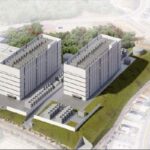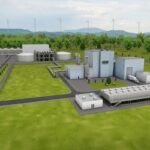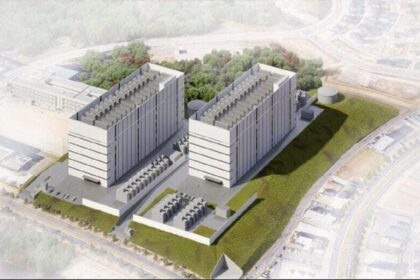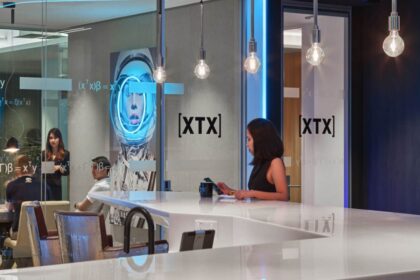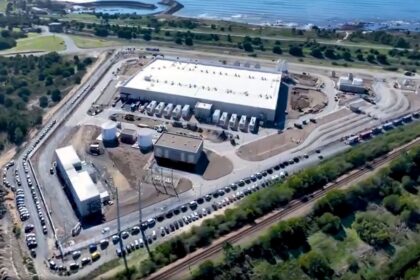A Strategic Collaboration for Bali’s Net Zero Future
The Amerta Bali Lestari Foundation’s INZET unit has entered into a Memorandum of Understanding (MoU) with Sustainability Economics to develop clean energy-powered AI data centers in Bali. This agreement is a pivotal step in Bali’s transition toward achieving Net Zero emissions. The collaboration promises to accelerate the use of sustainable energy solutions while promoting the growth of AI-driven data infrastructure on the island.
Sustainability Economics: A Leader in Net Zero Solutions
Sustainability Economics, with headquarters in both the United States and Singapore, specializes in delivering net-zero solutions to sectors with high emissions. Their innovative approach focuses on integrating clean energy with AI cloud data centers, creating a new paradigm for sustainable infrastructure. The company is committed to helping organizations transition from fossil fuels to renewable energy, utilizing solar, wind, batteries, biomass, and even nuclear and hydrogen technologies.
INZET’s Role in Bali’s Energy Transition
As an advisor to the Bali provincial government, INZET plays a crucial role in facilitating the implementation of sustainability projects in the region. Their expertise lies in navigating the complexities of the local regulatory environment and ensuring that projects are both environmentally and financially viable. The MoU with Sustainability Economics marks a significant step toward achieving Bali’s ambitious goal of becoming a Net Zero province by 2045, ahead of Indonesia’s national target.
Venkata Reddy Kasu: Accelerating the Energy Transition with AI and Clean Energy
Venkata Reddy Kasu, CEO and co-founder of Sustainability Economics, emphasized the importance of integrating clean energy solutions with AI-powered cloud data centers. He explained, “Our focus will be on accelerating the energy transition by integrating clean energy development with innovative AI-powered cloud data centers. Together with INZET, we are dedicated to driving impactful change that not only advances Bali’s sustainability goals but also sets an example for global efforts toward a sustainable future.”
Bali’s Vision for a Sustainable Future
Bali is taking bold steps toward a sustainable future, aiming to achieve Net Zero emissions by 2045. This goal is set well ahead of Indonesia’s national target, reflecting the island’s commitment to environmental responsibility. However, a major challenge lies in balancing sustainability with economic feasibility. Bali seeks to ensure that clean energy projects are not only impactful but also financially viable. The collaboration between INZET and Sustainability Economics aims to address this challenge by providing innovative, scalable solutions for the island’s energy needs.
Ida-Bagus Kesawa Narayana, Chairman of INZET, stressed the importance of integrating advanced clean energy technologies with AI-powered data infrastructure to ensure that Bali’s sustainability goals are achievable and profitable. He added, “Our expertise lies in integrating cutting-edge clean energy solutions, advanced technology, and AI-driven data centers to create a unique and innovative approach. This blend of competencies ensures that the transition to sustainability is both achievable and profitable.”
Scaling Clean Energy Solutions in Bali
Sustainability Economics will be pivotal in transitioning Bali from fossil fuels to clean energy sources. Their efforts will involve conducting feasibility studies, developing infrastructure, and attracting investment in renewable energy technologies. The clean energy mix for Bali will include solar, wind, batteries, biomass, thermal, nuclear, and hydrogen power, ensuring a diversified energy supply that can meet the growing demand for data center operations.
The Data Center Landscape in Bali
Currently, Bali’s data center market is relatively underdeveloped, with only four operational data centers in the region, according to DataCenterMap. These are managed by Indonesia Super Corridor, Cyber Network Indonesia, Nusantara Data Center, and neuCentrlX. However, much of Indonesia’s data center industry is concentrated around Jakarta, where the demand for cloud services and digital infrastructure is highest.
This collaboration between INZET and Sustainability Economics presents an opportunity to establish Bali as a key player in the global data center market while supporting the island’s sustainability objectives. By integrating clean energy with AI data centers, the partners aim to create a blueprint for sustainable data infrastructure that can be replicated in other regions.
The Future of Bali’s Data Center and Clean Energy Sectors
As Bali continues to position itself as a hub for clean energy innovation and digital infrastructure, the partnership between INZET and Sustainability Economics could serve as a model for other regions transitioning to Net Zero. The integration of AI and clean energy solutions in data centers not only supports sustainability but also enhances operational efficiency, making these technologies attractive to global investors and businesses looking to meet sustainability goals.
Conclusion: A Green Future for Bali
The MoU between INZET and Sustainability Economics signals a significant step toward Bali’s goal of achieving Net Zero emissions by 2045. With a focus on integrating clean energy with AI-powered data centers, the collaboration promises to drive innovation in both the energy and technology sectors. As Bali moves forward with this transition, it will set a powerful example of how sustainable practices can be combined with cutting-edge technology to create a greener, more resilient future.
FAQ Section
1. What is the goal of the MoU between INZET and Sustainability Economics?
The goal of the MoU is to collaborate on developing clean energy-powered AI data centers in Bali, supporting the island’s transition to Net Zero emissions by 2045.
2. How will Sustainability Economics contribute to Bali’s energy transition?
Sustainability Economics will provide clean energy solutions, including solar, wind, and hydrogen, and will assist in infrastructure development, feasibility studies, and attracting investment in renewable energy technologies.
3. What are the key challenges for Bali in achieving Net Zero emissions?
One of the primary challenges is ensuring that sustainability initiatives are both environmentally impactful and financially viable, which the collaboration aims to address by integrating advanced technologies and clean energy solutions.
4. What role does INZET play in Bali’s energy transition?
INZET acts as an advisor to the provincial government of Bali, helping to smooth the implementation of clean energy projects and ensuring regulatory compliance while also ensuring projects are financially feasible.
5. What makes the INZET and Sustainability Economics partnership unique?
The partnership uniquely integrates clean energy solutions with AI-driven cloud data centers, offering a holistic approach that combines technological innovation with sustainability.






